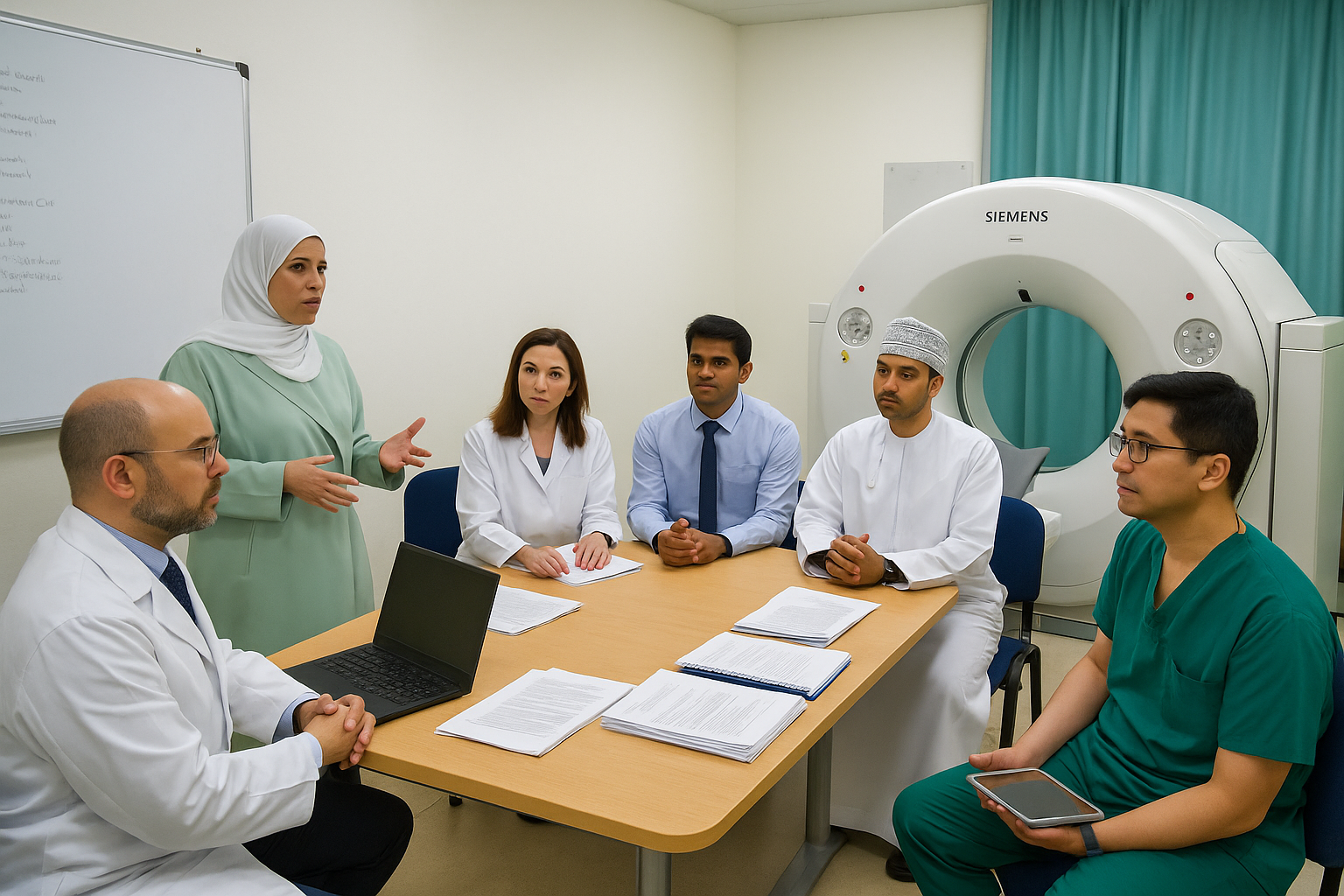Oman’s Royal Hospital Completes IAEA Nuclear Medicine Quality Audit
Located in Muscat, the Royal Hospital is a national referral center that serves over 4.6 million people, making it one of Oman’s most critical healthcare institutions.

- Country:
- Oman
In a significant step towards improving healthcare quality and patient safety in the Gulf region, the International Atomic Energy Agency (IAEA) has conducted its first Quality Management Audit in Nuclear Medicine Practices (QUANUM) at Oman’s Royal Hospital. The comprehensive audit, held in May 2025, marks a historic milestone as the country’s first full peer review of its nuclear medicine services, affirming Oman’s commitment to international standards in diagnostic and therapeutic nuclear medicine.
Located in Muscat, the Royal Hospital is a national referral center that serves over 4.6 million people, making it one of Oman’s most critical healthcare institutions. Its participation in the QUANUM audit reflects a broader national strategy to strengthen quality management across its healthcare system.
“Regular audits and assessments, underpinned by a quality management system, are essential for assuring the highest standard of care,” said Diana Paez, Head of Nuclear Medicine and Diagnostic Imaging at the IAEA. “QUANUM helps departments benchmark their practices and promotes a culture of continuous improvement.”
Preparing for a Global-Standard Audit
The Royal Hospital began its QUANUM journey by conducting an internal self-assessment, reviewing its clinical, technical, operational, administrative, and managerial procedures. Following this, the hospital formally requested an external peer review through the IAEA’s Human Health Programme.
Preparation for the audit included:
-
Compiling and submitting documentation
-
Notifying institutional stakeholders
-
Organizing access to relevant facilities and resources
-
Ensuring full staff participation
-
Presenting an overview of departmental operations
This groundwork paved the way for an in-depth on-site audit by a multidisciplinary IAEA team and international experts from countries including Thailand, hosted through the IAEA Technical Cooperation Project OMA6012, aimed at improving national diagnostic and treatment capabilities.
A Week of Expert Review and Insight
Held from 4–8 May 2025, the QUANUM mission involved a detailed inspection of the nuclear medicine department’s end-to-end operations—from patient referral and onboarding, through to diagnostic imaging, therapy administration, radiation safety, and follow-up procedures. The team toured facilities, interviewed staff, assessed equipment, safety protocols, radiopharmaceutical handling, and evaluated quality control mechanisms.
“The QUANUM mission was an important step in supporting Oman to strengthen national capabilities in diagnosing and treating both communicable and non-communicable diseases,” noted Ashley Bantelman, IAEA Programme Management Officer.
The evaluation also placed emphasis on radiation protection practices, data management systems, and regulatory compliance, ensuring that both patient welfare and staff safety are prioritized.
Findings and Next Steps
At the conclusion of the audit, the IAEA team shared its preliminary findings, highlighting both best practices and areas for improvement. A formal written report—including actionable recommendations and a follow-up plan—will be delivered in the coming months. The hospital’s leadership has already embraced the audit’s insights.
“The QUANUM audit had a significant and positive impact on our department,” said Dr. Khalisa bint Zahran Al Nabhani, Senior Consultant and Head of Nuclear Medicine at the Royal Hospital. “It validated our strengths and provided us with valuable guidance for continuous improvement. It was empowering and inspired the team to take greater ownership of quality in their daily work.”
What Is QUANUM?
QUANUM, developed by the IAEA in 2009 and revised in 2015 and 2021, is a globally recognized framework for assessing and improving the quality management of nuclear medicine services. Each QUANUM mission is carried out by a team of four experts: a nuclear medicine physician, medical physicist, nuclear medicine technologist or radiographer, and a radiopharmacist or radiochemist.
The process involves:
-
A preparatory self-assessment
-
A detailed on-site peer review
-
A written report with recommendations
-
A follow-up visit (where applicable)
Importantly, QUANUM audits are provided free of charge to the host institutions through IAEA’s technical cooperation program.
Broader Global Impact
Beyond QUANUM, the IAEA also offers:
-
QUAADRIL for diagnostic radiology
-
QUATRO for radiation oncology
These programs aim to ensure safe, effective, and high-quality medical use of ionizing radiation in diagnostic and therapeutic contexts globally. By participating in these audits, institutions not only raise internal standards but also align with international best practices, enabling better regional cooperation and patient referral networks.
The successful implementation of QUANUM at Oman’s Royal Hospital represents a promising start in the country’s journey toward global excellence in nuclear medicine, paving the way for other institutions in the region to follow suit. With IAEA’s support, Oman is poised to enhance healthcare delivery, promote patient safety, and lead by example in embracing a culture of quality and accountability in medical imaging and therapy.










